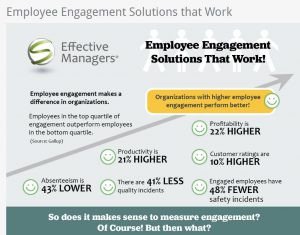
Trust is generally not a given, so it’s necessary for those who work remotely to make an extra effort to build it. There’s a reason why remote workers are subject to more suspicion: research has found that those who aren’t present in the office are more likely to miss deadlines, and less likely to make an effort in general. They’re also more likely to change things without any prior notice.
Working remotely has pros and cons
None of the above details garner much trust from co-workers, so to behave in this way is only going to damage working relationships. Of course, it’s not cut and dried; there are also benefits for all involved when workers are remote.
Remote workers have fewer challenges in the form of travel and costs, for example. Less stressed and tired colleagues tend to be more productive, which only benefits the company as a whole. It’s easy to understand why people would favour it.
A key point is to treat your working relationships as you would your personal relationships. You know that you need to show willing, and to demonstrate respect and reliability. Communication is paramount… understanding expectations and working within clear boundaries is too.
Here are six ways we can recommend for building trust remotely:
1. Be transparent
This means voluntarily explaining your actions, decisions, and movements. If you are open about what you’re doing and when, others will automatically feel that you’re trustworthy. The more transparent you are, the more people will assume that you never have anything to hide.
For example, if you need to go out for a few hours, contact those who are likely to want to connect with you during that time and let them know. This allows them to plan around your activities, rather than wondering what you’re up to.
2. Do what you say you’re going to do
There’s nothing worse for trust than people reneging on their word. If you told your boss the report would be there by 3pm, it’s not smart to send it over at 5pm just because you know you there will be nobody wandering over to your desk looking for it.
Although you might get away with this kind of thing once or twice, you’ll soon have a reputation for being unreliable. When this happens, you’ll have a hard time getting colleagues to trust you on other matters too.
4. Give it your all
Again, just because nobody is breathing down your neck, make a point of being as dedicated to your work as you would be if you shared a pod with your boss. If you work remotely but are seen to always go the extra mile, nobody will ever have a problem with your absence from the office.
Don’t be afraid to do a few extra duties now and then, even if it’s not a requirement. Lightening a busy workmate’s load from time to time will go a long way toward building trust.
If anything, these things will give credence to the idea that workers who have freedom are more productive. This makes it more likely for others to be granted the same freedoms, potentially leading to a happier work force.
4. Communicate effectively and in a timely manner
Communication is one of the biggest factors when building trust. If you’re slow to respond to teammates, they’ll wonder what takes you so long. Similarly, the way you communicate is important. It doesn’t pay to make any assumptions.
As you won’t have the face-to-face element in your communications, it’s easier to misinterpret intentions and even tasks. Be sure to confirm everything clearly, and preferably in writing.
Don’t always rely on emails and texts for communication, however clear you are. They are impersonal, so a voice on the phone is far more connective. Do brainstorm sessions via video call, for example. When colleagues hear or see you regularly, they get to know your personality a little better, which can only help trust to grow.
5. Get to know your colleagues
Although this one is trickier when you’re a remote worker, it’s still possible. Don’t miss an opportunity to meet with any colleagues that may be in your area. It’s also good to suggest dates and convenient locations to get together and do something as a team.
It doesn’t have to be something formal; team-building exercises are great but a social occasion lets colleagues know you’re interested in who they are as people.
If you can’t all be in the same place at the same time, you can always do group video calls. If you need a reason, suggest a fun activity like story telling; laughing together about past work or life experiences can create bonds.
6. See your colleagues as fallible human beings
In many corporations, people often define each other primarily by their roles within the company. Most days the ‘work hats’ are on, as they should be; but this can lead to a subtle discord between workers. If you don’t know your colleagues well, it’s easy to think of them mainly in terms of their habits and abilities.
Whatever their abilities, they are just human beings. For example, they may not find it easy to admit when they haven’t done something well, for fear of judgment. Keeping in mind that all your colleagues are fallible humans with their own issues and vulnerabilities is key.
When a problem does arise, treat your coworkers with compassion. They’ll be likely to return the favour if the need arises. Similarly, being as open as possible will also encourage others to do the same.
Ultimately, building trust is a matter of consistency, respect, effort, transparency and communication. These are not difficult things to master, they just require awareness and consideration. One added bonus is that developing such qualities can only enhance your entire life! Before you know it, you’ll have genuine understanding in all of your relationships, and that can’t be bad.

Learn about employee engagement and how it can drive improved organization performance. The answer may surprise you.
Check out our YouTube channel for free VidCasts and recorded Webinars.







